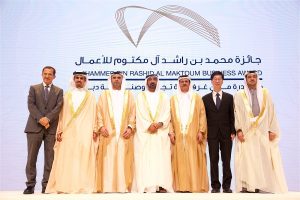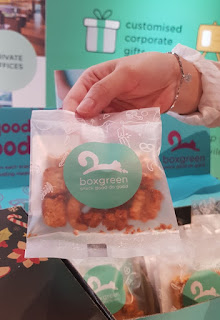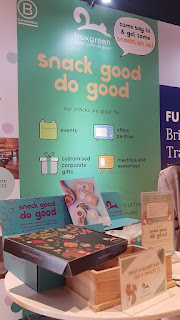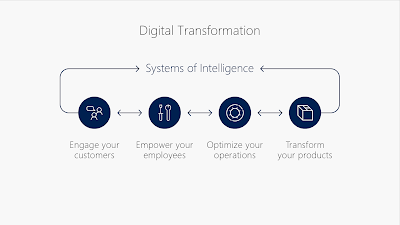Malaysia Commercialisation Year Award winners have been announced for 2018. The Malaysia Commercialisation Year Award, which the Malaysia Ministry of Energy, Science, Technology, Environment & Climate Change (MESTECC) introduced in 2016, is aimed at recognising, appreciating and motivating local R&D talents to penetrate local and international markets.
This year, MESTECC assessed 212 products in terms of technological and commercial readiness and arrived at 27 finalists who had to pitch their products to a panel of judges. There are 10 winners for the
MCY Award 2018, a main winner and a consolation winner for each of five categories:
Commercial Deal Award criteria:
- Excellence in research commercialisation
- Outstanding innovation performance
- Innovative nature of the deal; and
- Potential for generating significant economic impact for Malaysia.
 |
| Source: MESTECC. DERMAGS skincare. |
DERMAGS Skincare
Biopro Cosmeceutical, a UTM spinoff and a Technology Park Malaysia (TPM) incubatee
Main winner,
Commercial Deal Award 2018
DERMAGS skincare products use alpha mangostin, an extract from mangosteen skin, delivered in niosomes - the effective ingredient is encapsulated in a 'vesicle' to prolong delivery. The products have been successfully exported abroad to Singapore, China, and India. The estimated commercialisation value up to September 2018 is RM 6.3 million.
 |
Source: MESTECC. Detachable
electrical sockets. |
Detachable Electrical Extension Socket
Far East Pyramid
Consolation winner,
Commercial Deal Award
This product is available in stores such as Harvey Norman and e-commerce platforms such as Lazada.
Research & Business Partnership Award criteria:
- Working relationship between a research organisation and businesses;
- Commercial value for Malaysia; and
- Joint development/collaborations between research organisations and businesses
RESCUE-I Monitoring System
Petronas University of Technology (UTP) and Syarikat Semarak Motivation
Main winner,
Business Research & Partnership Award
Syarikat Semarak Motivation specialises in security engineering.
RESCUE-I Monitoring System is a digital intelligent control system developed specifically for rescuers to monitor physiological activity during a rescue operation. This real-time system integrates software modules, hardware sensors and data communications via radio networks.
This product has been successfully tested by the Fire and Rescue Academy of Malaysia and provides rescuers with more confidence even in high-risk areas.
Figs: From Farm to product
 |
| Source: MESTECC. Fig-based products. |
Figsdirect, collaborating with the Malaysian Agricultural Research And Development Institute's (MARDI's) R&D
Consolation winner,
Research Business and Partnerships Award
These fig-based products are rich in bioactive material. The product is ideal for people with diabetes, eczema or other skin problems and may also attract consumers who are looking for sunnah-related functional foods**.
Researcher Entrepreneur Award criteria:
Recognising an entrepreneurial researcher who has made outstanding contributions to business innovation or has created innovative businesses in Malaysia through technology licensing, startup creation or by providing expertise to support business innovation.
Versatile Graphene
Universiti Putra Malaysia (UPM)
Main winner,
Research Entrepreneur Award
Researchers from UPM can produce large volumes of graphene directly from graphite with simpler, cheaper, environmentally-friendly methods. The graphene can be used in gloves, inkjet printer ink, oil absorbers as well as batteries and super-capacitors. The commercialisation value of this product for 2018 has been estimated at RM86,000.
QuikHalal Universiti Teknologi Malaysia (UTM)
Consolation winner,
Research Entrepreneur Award
 |
| Source: MESTECC. The QuikHalal logo. |
A halal auditing application that reduces the complexity, time and cost of halal auditing processes. The app can capture photos from mobile devices and automatically generate halal compliance reports. The estimated commercialisation value of this product for 2018 is RM100,900.
As of 2018, the app has 25 local users. UTM plans to further develop the app to support countries with Islamic-friendly hospitality industries like Thailand, Korea, Japan and Indonesia.
Emerging Innovator Award criteria:
Recognising an upcoming entrepreneurial researcher who is making outstanding contributions to business innovation or is creating innovative businesses in Malaysia through technology licensing, startup creation or by providing expertise to support business innovation.
Emergency Evacuation System
Anderes Fourdy
Main winner,
Emerging Innovator Award
This RFID Ultra High Frequency-based platform solves the problem of manual tabulation during emergencies and can identify trapped victims inside a building. The system has been implemented at Kuala Lumpur Convention Center and also at Petronas Twin Tower 1. There is interest from other organisations, including Petronas Twin Tower 2 and Maxis Tower. The estimated commercialisation value of this product for 2018 is RM1,162,380.
STRIX Nest Fully Autonomous Unmanned Aerial System & Ground Sensor
Precision Agriculture Robotics, a TPM incubatee
Consolation winner,
Emerging Innovator Award
 |
| Source: MESTECC. STRIX Nest. |
The product is an autonomous air system capable of collecting agricultural data and aquaculture at low cost.
Social Entrepreneur Award criteria:
- Product that caters to social needs; and
- Transformative social change through the application of innovative and practical approaches / technology to benefit society overall
UNIMAS Crab House
Universiti Malaysia Sarawak (UNIMAS)
Main winner,
Social Entrepreneur Award
This innovation aims to increase income for the B40 population band*, especially fishermen during the monsoon season. The product has low-cost construction, and is designed to be easy to monitor and control. A mobile app complements operations and creates a digital management monitoring system. The estimated revenue in 2018 for this product is RM58,800.
 |
| Source: MESTECC. Battery Pack C13. |
Battery Pack C13
Conjunto Thirteen
Consolation winner,
Social Entrepreneur Award
This product can generate electricity without the need for oil or gas. This product can also be used during blackouts, for camping and also during natural disasters. Estimated revenues for 2018 run to RM95,000.
Today, winners receive support for:
• Design including physical design and packaging
• Accreditation, certification, a technology audit and market research
• Incubation including mentoring
• Advisory services related to product development, financial management and intellectual property; and
• Participation in local and foreign exhibitions.
The main winners each receive RM130,000, 50% in cash and 50% in facilitation services. Consolation winners receive RM50,000, also half in cash and the rest in facilitation services.
While only 10% of the winners from previous years were from universities, academic institutions are catching up in 2018. Out of the 10 winners, four are from local universities (UPM, UNIMAS, UTM and UTP); three are companies from Technology Park Malaysia, one is a private company and one is a research institute (MARDI).
To date,
MCY Award winners have exported their products worldwide. BNetwork, which won the
Research Entrepreneur Award 2016 for its
bWave IoT Platform for securing smart homes
, has successfully held discussions with businesses in Indonesia, Pakistan, Egypt and the Middle East for domestic and regional markets with contracts until the year 2020.
CAISER (Computer Assisted Intelligent Event Processor) from Universiti Kebangsaan Malaysia (UKM)
, which won the
Emerging Innovator Award 2016, is used in a vehicle monitoring system in Singapore and for a water quality notification system in South Africa as well as by local agencies in Putrajaya, Malaysia.
AnanoCoat, the winner of the
Commercial Deal Award 2017, is the result of research by Universiti Sains Malaysia. The product uses photocatalysm (light-based stimulation) to decompose organic compounds, kill bacteria, eliminate odours and stunt the growth of fungi and viruses. After commercialisation by Ananosphere, a TPM incubatee,
AnanoCoat is seeing sales on Alibaba.com.
Malaysia Commercialisation Year was first initiated in 2016. As of August 2018, 303 products have been successfully commercialised, accounting for sales turnover of RM290.88 million. The main target of
MCY is to boost research, development and innovation (R, D & I) results from local research institutions as wealth generator through commercialisation process. MCY is also a platform to raise awareness of stakeholders and the people about the potential of innovation and commercialisation in raising the nation's revenue.
As part of the
MCY Special KPIs, research institutes, universities and related technology development agencies have collectively pledged to commercialise up to 360 products/technologies from various categories by the year 2020.
They are supported by the
Second Wave of MCY 2.0 (2017-2019), which focuses on:
- Strengthening the commercialisation ecosystem;
- Expanding cooperation with strategic partners from industry, states and international government; and
- Expanding markets for local research, development, commercialisation and innovation (R, D, C & I) regionally and internationally.
*B40 refers to the bottom 40% of household income earners.There are three population bands, with T20 being the top 20% of income earners and M40 the middle 40% of household income earners.
**A functional food is one which has health-giving properties.




































